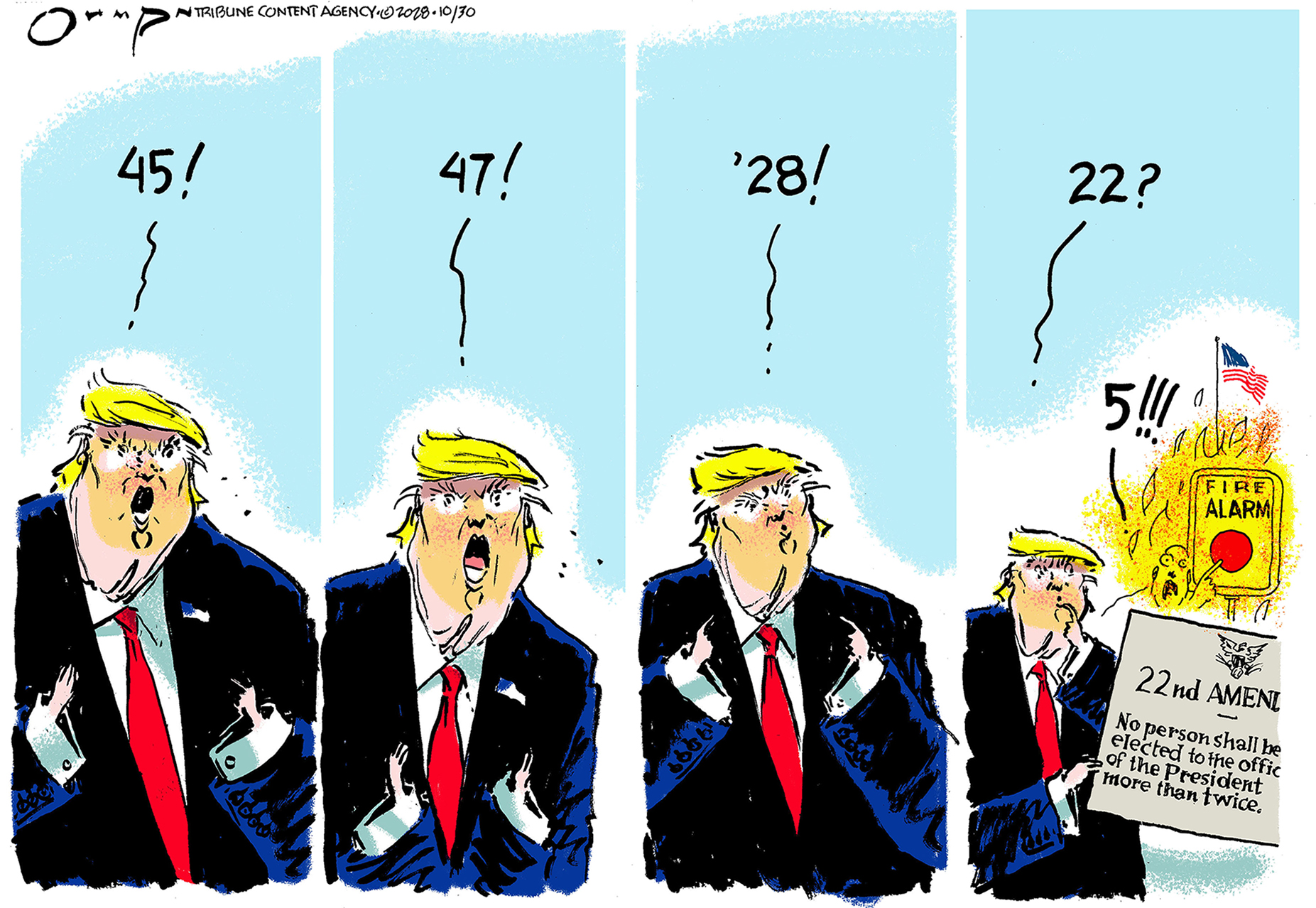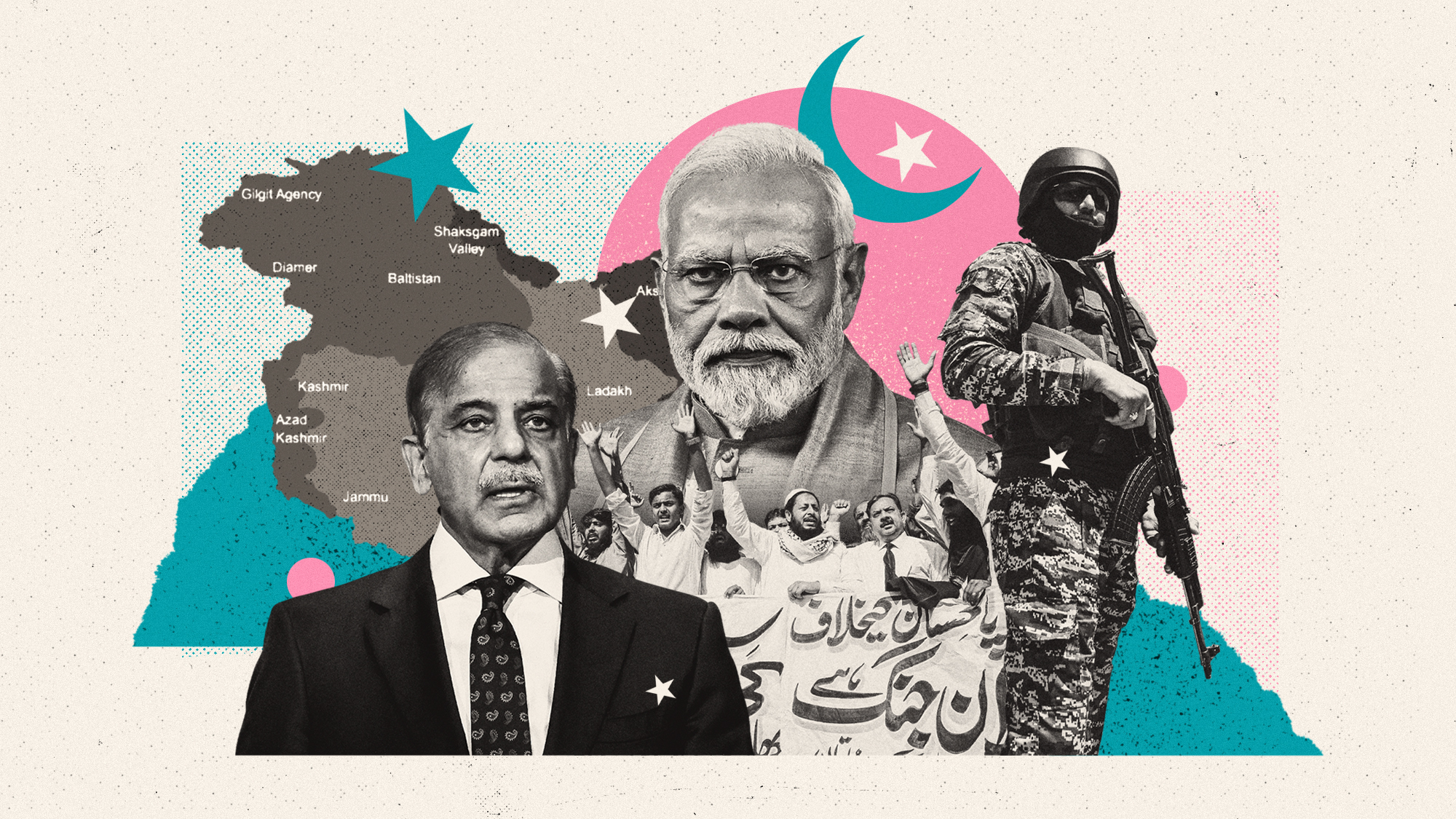Will Emmanuel Macron save the European Union?
Now comes the hard part for the next president of France


The Western world breathed a sigh of relief on Sunday, as the centrist Emmanuel Macron decisively defeated the extreme-right Marine Le Pen to take the presidency of France. It's not totally over, however: There are legislative elections next month, where the National Assembly will be selected. If Macron or parties sympathetic to him don't win a majority, President Macron could be in "cohabitation" with an unfriendly parliament — akin to divided government in the United States, and similar in terms of the resulting gridlock.
But assuming that Macron has at least a workable relationship with the Assembly, the big question for him now is how to avoid the fate of his predecessor, François Hollande, whose approval now sits at roughly 4 percent. To save himself, he must save the European Union — by fixing the eurozone.
What wrecked Hollande's presidency was the same thing that wrecked PASOK in Greece and the Spanish Socialist Workers Party: austerity and the euro. Before the 2008 financial crisis, huge sums of hot money flowed from German and French banks into southern European nations — which caused a sharp economic collapse when they stopped on a dime after the crisis.
The Week
Escape your echo chamber. Get the facts behind the news, plus analysis from multiple perspectives.

Sign up for The Week's Free Newsletters
From our morning news briefing to a weekly Good News Newsletter, get the best of The Week delivered directly to your inbox.
From our morning news briefing to a weekly Good News Newsletter, get the best of The Week delivered directly to your inbox.
The wise response for a country suffering a sharp recession is obvious: deficit spending and monetary stimulus to restore demand, and devaluation to improve the balance of trade. So long as there is unemployment, and the central bank stands behind the government borrowing, there will be no excessive inflation.
But when they signed up for the eurozone, European nations also signed away most of their economic sovereignty. The IMF, the European Commission, and above all the European Central Bank now dictated economic policy. They used their control of the euro to mandate the opposite of wisdom: austerity instead of deficit spending, tight money instead of monetary stimulus, and neoliberal assault on workers protections and social programs. (Devaluation was largely ruled out by the fact of the common currency itself.) The result was an extraordinarily terrible economic performance overall, concentrated in the southern European countries, which suffered a Great Depression-level disaster.
France got a small piece of that during the Hollande years when austerity and neoliberal reforms were implemented under eurocrat pressure. Advertised to create more growth and employment, these sacrifices had the precise opposite effect: France's economic growth and unemployment fell behind that of neighboring nations.
Obviously France is not suffering like Greece. But people tend to compare their situation to the closest available baseline. So it's understandable that the French would be upset at falling behind — especially given that the promised payoffs are not materializing. The fact that Hollande was essentially taking orders from unaccountable technocrats outside the French government only added to the disillusionment.
A free daily email with the biggest news stories of the day – and the best features from TheWeek.com
So what Macron needs to do is shake some sense into the eurocrat class. He must confront them, publicly if necessary, and demand an end to pointless austerity, anti-worker reform, and anti-democratic behavior. At a minimum, he must demand fiscal stimulus to restore employment in the depressed eurozone nations and reverse the eurocrats' world-historical failure. And to show he's serious, Macron must also appoint a finance minister who can forcefully advocate his positions to the Eurogroup.
Frankly I do not believe that Macron will do anything like this. You almost could not imagine someone with a more unlikely background — a milquetoast centrist former investment banker who literally wrote Hollande's failed reform bill — for confronting the eurozone dictatorship.
But people can surprise you. While Macron faces a difficult task precisely because the eurozone is outside of democratic control, the eurocrats will no doubt hesitate to bludgeon France into line as they did Greece. The French-German partnership is the heart of the eurozone and the European Union as a whole, giving Macron far more leverage than Alexis Tsipras ever had. Plus, Macron would be able to argue with much plausibility that if the eurocrats cannot come to terms with him, eventually they will face a left- or right-wing French leader who will conclude the eurozone is beyond saving and simply withdraw.
And it's important to remember that to a great degree, Macron's policy would be a sensible one for the whole eurozone. An economy should not be satisfied with eight years of economic flatlining.
If he doesn't, and France's economy continues to sputter along (or get worse), then Le Pen should be very well placed indeed for a rematch in the next election. Look out.
Ryan Cooper is a national correspondent at TheWeek.com. His work has appeared in the Washington Monthly, The New Republic, and the Washington Post.
-
 Political cartoons for November 2
Political cartoons for November 2Cartoons Sunday's political cartoons include the 22nd amendment, homeless camps, and more
-
 The dazzling coral gardens of Raja Ampat
The dazzling coral gardens of Raja AmpatThe Week Recommends Region of Indonesia is home to perhaps the planet’s most photogenic archipelago.
-
 ‘Never more precarious’: the UN turns 80
‘Never more precarious’: the UN turns 80The Explainer It’s an unhappy birthday for the United Nations, which enters its ninth decade in crisis
-
 Sanae Takaichi: Japan’s Iron Lady set to be the country’s first woman prime minister
Sanae Takaichi: Japan’s Iron Lady set to be the country’s first woman prime ministerIn the Spotlight Takaichi is a member of Japan’s conservative, nationalist Liberal Democratic Party
-
 Russia is ‘helping China’ prepare for an invasion of Taiwan
Russia is ‘helping China’ prepare for an invasion of TaiwanIn the Spotlight Russia is reportedly allowing China access to military training
-
 Interpol arrests hundreds in Africa-wide sextortion crackdown
Interpol arrests hundreds in Africa-wide sextortion crackdownIN THE SPOTLIGHT A series of stings disrupts major cybercrime operations as law enforcement estimates millions in losses from schemes designed to prey on lonely users
-
 China is silently expanding its influence in American cities
China is silently expanding its influence in American citiesUnder the Radar New York City and San Francisco, among others, have reportedly been targeted
-
 How China uses 'dark fleets' to circumvent trade sanctions
How China uses 'dark fleets' to circumvent trade sanctionsThe Explainer The fleets are used to smuggle goods like oil and fish
-
 One year after mass protests, why are Kenyans taking to the streets again?
One year after mass protests, why are Kenyans taking to the streets again?today's big question More than 60 protesters died during demonstrations in 2024
-
 What happens if tensions between India and Pakistan boil over?
What happens if tensions between India and Pakistan boil over?TODAY'S BIG QUESTION As the two nuclear-armed neighbors rattle their sabers in the wake of a terrorist attack on the contested Kashmir region, experts worry that the worst might be yet to come
-
 Why Russia removed the Taliban's terrorist designation
Why Russia removed the Taliban's terrorist designationThe Explainer Russia had designated the Taliban as a terrorist group over 20 years ago
